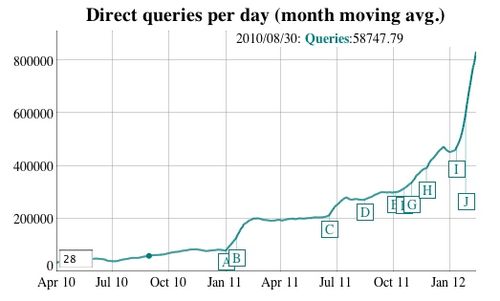Indeed
The first great investment we made at USV was Indeed in the summer of 2005. Brad had been looking for a search engine for jobs and I saw this post on John Battelle's blog in late 2004. I forwarded it to Brad and he reached out to Paul and Rony. It took two tries before we could convince them to take our money. They had bootstrapped the company, launched the service, and were well on their way. They didn't need our money. But eventually we convinced them to take it, along with the New York Times Company and our friends at Allen & Company.
Indeed has always been the quiet one. Nobody really talks about them. But as I have said a number of times on this blog, they are the most complete company in our portfolio. They have it all. Two world class entrepreneurs as founders. A solid management team all up and down the company. A product that is beloved and services more than 80mm people worldwide every month. An engineering team that has kept the service up with literally no down time that I can ever remember. A business model that, like Google's, is the best on the Internet. Revenues, profits, customer satisfaction, shareholder value. They built a fortress and I am just so happy to have had a front row seat watching them build it.
The quiet one is the one that can do a big M&A transaction over the summer without anyone finding out. The quiet one is the one that puts out the news on their blog and goes back to serving customers. The quiet one is the first great investment we made at USV and one that will always have a special place in my heart. Congrats to Paul, Rony, and the team. We will miss working with you.






![Reblog this post [with Zemanta]](http://img.zemanta.com/reblog_b.png?x-id=5eb075e8-e65d-42c9-85e7-9c8cb18c656f)